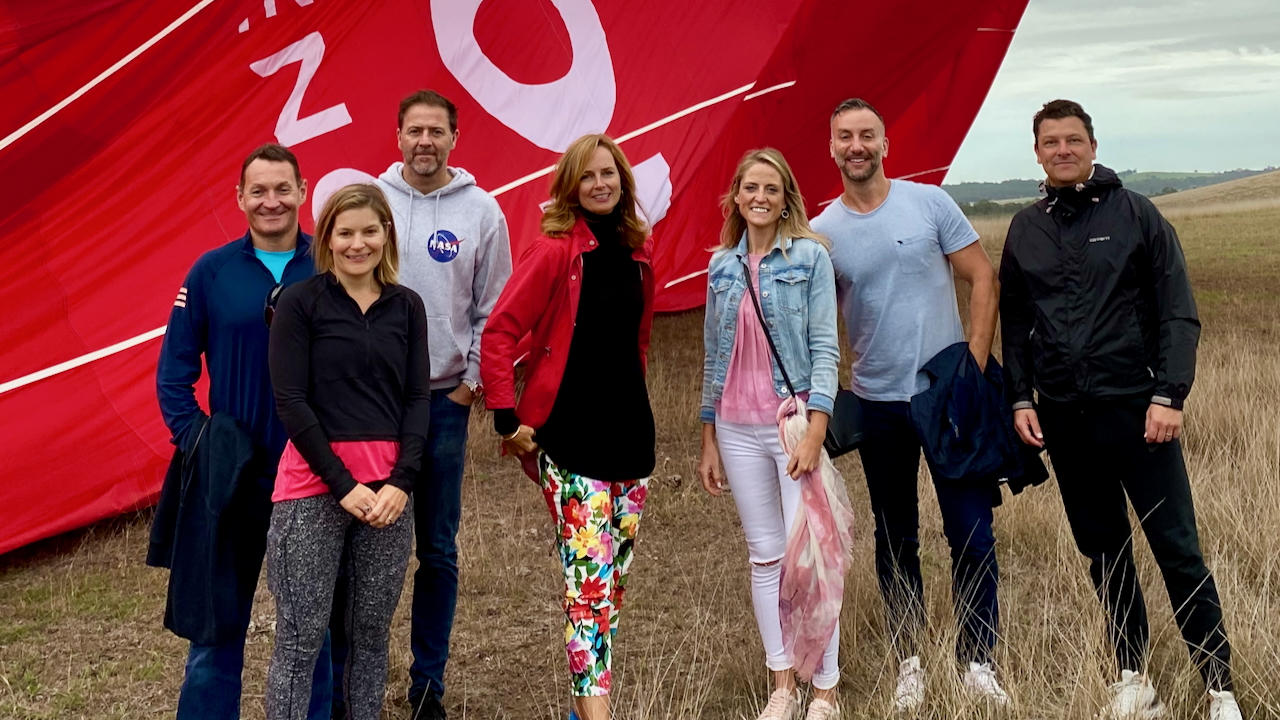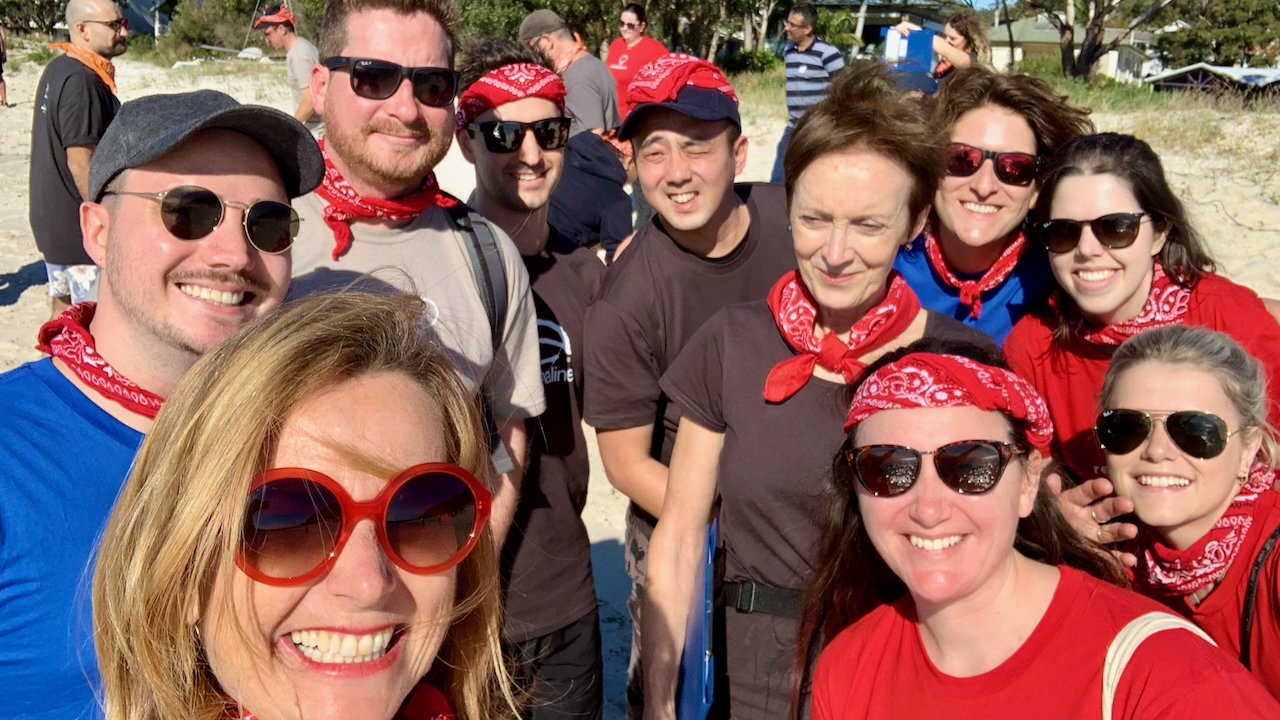The Unseen CEO
We often have a fixed image of what a leader looks like. We picture a sharp suit, a corner office in a city skyscraper, a person commanding a room full of executives. I’ve been in those rooms, and I can tell you that leadership certainly exists there. But some of the most powerful, resilient, and inspiring examples of small business leadership I have ever witnessed have been far from any capital city, in towns where the main street is the only street, and the biggest risk isn’t a competitor, but the weather forecast.
I remember visiting a small town in regional New South Wales a few years ago. I met a woman who ran a local café and gift shop. On the surface, she was a small business owner. But as we spoke, I realised she was so much more. She was the town's biggest employer of young people, the unofficial community noticeboard, the person who organised fundraisers when a local family fell on hard times, and the one who had recently taken her entire business online, teaching herself digital marketing late at night after a 12-hour day on her feet.
She wasn’t just a business owner. She was a CEO, a community-builder, a crisis manager, and a digital innovator. She was a leader in every sense of the word.
This is a story that repeats itself in thousands of towns and communities across our nation. The story of small business leadership that is often unseen, uncelebrated, but is the absolute bedrock of our national character and economy. It's time we changed the narrative. It’s time we recognised that the future of Australian business doesn't just lie in our bustling cities, but in the quiet determination and incredible leadership of our regional entrepreneurs.
The Leader as a Community Anchor
In a large city, a business is a commercial entity. In a small town, a business is a vital organ. The small business leadership required in a regional context extends far beyond the four walls of the shop. You are intrinsically woven into the social and economic fabric of your community. Your success is the town’s success. This is an immense pressure, but it is also an extraordinary privilege.
When you decide to hire a new person, you’re not just filling a role; you’re often giving a young person their first job or enabling a family to stay in the town they love. When you sponsor the local footy team, it’s not just a marketing expense; it’s a commitment to the town's spirit. When you choose to source your supplies from another local business, you’re creating a micro-economy that sustains you all.
This form of leadership demands a stakeholder view that is broader and more profound than in any corporate environment. Your stakeholders are your neighbours. They are the parents of your children’s friends. This creates a level of accountability and responsibility that is deeply personal. It requires leaders to think generationally, not just quarterly. They are not just building a business; they are building a community. They are the anchors that hold the town together.
This community-centric approach is not a "soft" skill; it is a powerful business strategy. The deep trust and loyalty a leader builds within their community becomes a protective moat around their business, creating a level of goodwill that city-based businesses can only dream of.
Forged in Adversity: The Leader as a Master of Resilience
Nowhere is the mettle of small business leadership tested more fiercely than in regional Australia. The challenges are relentless and often existential. I’m not talking about a new competitor opening up down the street; I’m talking about devastating droughts that sap the economic lifeblood from a region, catastrophic bushfires that can wipe out a lifetime’s work in an afternoon, or floods that cut off communities for weeks on end.
These events are not just business challenges; they are deeply personal and traumatic crises. To lead a team, a family, and a business through them requires a level of resilience that is simply extraordinary. But what I have seen time and again is that these crucibles don't just test leaders; they forge them.
Think of the "Buy from the Bush" movement. On the surface, it was a brilliant social media campaign that captured the heart of the nation. But underneath that hashtag was an incredible story of small business leadership. It was the story of thousands of individual business owners who, in the face of crippling drought, refused to give up.
They made a courageous leadership decision. They chose to fight. They chose to innovate. They invested their scarce time and resources to learn new skills, to get their products online, to photograph their wares, and to tell their story to a new audience. They led their businesses out of the dust and onto the digital main street. This was a pivot born of desperation but executed with a level of grit and creativity that would be celebrated in any boardroom.
This resilience is not a passive trait; it's an active leadership strategy. It's the ability to look at a devastating situation and ask, "What can we do?" It's about modelling hope and determination for your team when they are exhausted and scared. It's about having the financial discipline during the good times to build a cash reserve that helps you survive the bad. This is the harsh reality and the defining characteristic of rural small business leadership.
Bridging the Divide: The Leader as a Digital Pioneer
For a business in a capital city, having a digital presence is a given. For a business in a remote town, it represents a monumental leadership leap. The digital divide is not just about a lack of reliable internet, though that is often a frustrating reality. It’s about a leadership mindset.
The decision to take your business online is a strategic choice to refuse to be limited by your geography. It’s a declaration that your market is not just the 500 people in your town, but the 26 million people in your country, and potentially, the billions across the world.
As we've worked with thousands of experience providers at Big Red Group, many from regional and remote areas, I have seen this leadership firsthand. I've seen a fourth-generation sheep farmer learn how to use a booking platform to offer farm tours, opening up a whole new revenue stream for their family. I've seen an Indigenous tour operator in the Red Centre use our digital reach to share their culture with a global audience, creating jobs and preserving ancient traditions.
This transformation requires immense courage. It means stepping into a world that can feel intimidating and foreign. It means investing in new systems, learning new jargon, and trusting that your unique story will find an audience. It means leading your team—who may be just as hesitant as you are—through a fundamental change in how you do business. The leaders who do this successfully are true pioneers. They are building a bridge from the red dirt of the outback to the global digital economy, and in doing so, they are creating a future for their communities.
Leading with Place: The Power of Authentic Storytelling
Perhaps the greatest competitive advantage for any rural business is its story. In a world of mass production and anonymous transactions, consumers are craving authenticity, connection, and meaning. And regional businesses are dripping with it.
Great small business leadership in this context is about understanding that you are not just selling a product or a service. You are selling a piece of your place. You are the custodian of a story.
- It's the winemaker who can tell you about the unique soil and microclimate that gives their wine its character.
- It's the artisan who uses wool from local sheep and tells the story of the shearers and the landscape.
- It’s the tour guide who doesn’t just show you a rock formation but shares the Indigenous Dreaming story that brings it to life.
This is not a marketing gimmick; it's the deepest form of authentic leadership. It requires a genuine connection to your place and a passion for sharing its story with the world. You cannot fake this. Your customers can sense authenticity a mile away. When you lead with your story, you transform a simple transaction into a memorable connection. You build a brand that people don't just buy from, but believe in.
A Call to Action: How We Can All Champion Rural Leadership
Recognising and celebrating these leaders is the first step. The next step is to actively support them. This is a call to action for all of us.
For consumers: When you "buy from the bush," understand that you are doing more than just helping a business. You are casting a vote of confidence. You are investing in a leader and their community. You are fueling the engine of regional Australia.
For city-based business leaders: This is where we can make the biggest difference. Our world of spreadsheets, digital marketing funnels, and supply chain logistics can seem a world away, but our expertise is desperately needed.
- Mentor a rural entrepreneur. An hour a month on a video call can provide invaluable guidance and a fresh perspective.
- Rethink your supply chain. Is there a product or service you could be sourcing from a regional business?
- Encourage your teams to travel and experience regional Australia. Our corporate and team-building experiences are increasingly focused on getting people out of the city to connect with each other and the country.
This is not charity. It is a strategic partnership. The innovation, resilience, and authenticity you will find in regional Australia can be a powerful source of inspiration and learning for your own teams.
The True Heart of Australian Enterprise
The narrative of small business leadership in Australia needs a new chapter. One that celebrates the quiet, determined, and deeply impactful leadership that happens every single day in our regional towns. These leaders are not just creating profits; they are creating communities. They are not just building businesses; they are building a more resilient, diverse, and interesting nation.
They are the community anchors, the masters of resilience, the digital pioneers, and the authentic storytellers. They are the unseen CEOs whose leadership provides the backbone of our country. The more we learn from them, invest in them, and champion them, the stronger our national economy and our national character will be.
Frequently Asked Questions (FAQs) on Why the Future of Australian Business Depends on Rural Leadership
What defines "rural leadership"?
Rural leadership is a style of leadership forged in environments where resources can be scarce, and community ties are paramount. It is defined by a unique combination of resilience, resourcefulness, and a deep-seated commitment to long-term relationships. Rural leaders are masters of adaptation and are accustomed to solving complex problems with ingenuity and a collaborative spirit.
Why are the skills of rural leaders so valuable for all Australian businesses?
The skills honed in rural Australia—such as adaptability in the face of unpredictable conditions, strong community-building, and a sustainable, long-term perspective—are precisely the qualities all Australian businesses need to navigate an increasingly volatile global market. This mindset is a powerful antidote to the short-term, siloed thinking that can limit urban-based businesses.
What can urban businesses learn from the resilience of rural communities?
Urban businesses can learn that true resilience is not just about bouncing back from a crisis, but about proactively building a strong, interconnected support system. Rural communities thrive on mutual trust and a "we're all in this together" ethos. This approach to building deep, collaborative relationships is a powerful model for creating more loyal teams and customer bases in any setting.
How does rural leadership foster a different kind of innovation?
Rural leadership fosters a pragmatic and resourceful kind of innovation, born from necessity. With limited resources, leaders become experts at creative problem-solving and finding novel uses for what they have. This "do more with less" mindset is incredibly valuable for any business looking to operate more efficiently and sustainably.
What role does a long-term perspective play in the rural leadership model?
A long-term perspective is fundamental to the rural leadership model, where decisions are often made with future generations in mind. This contrasts with the pressure for short-term quarterly results that can dominate corporate thinking. This focus on sustainability and enduring legacy is a critical lesson for building businesses that are designed to last.






